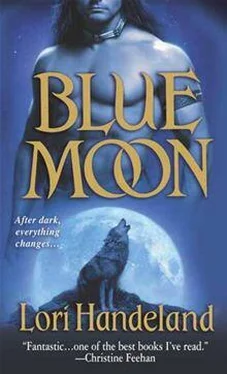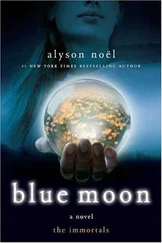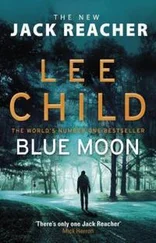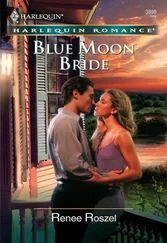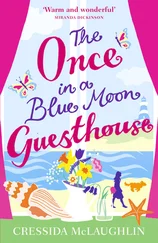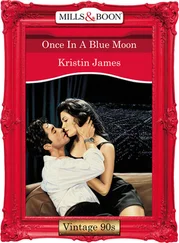The only other explanation was the wolf had been wearing the necklace, and I had a hard time buying that.
I yanked out the notes I’d made while I waited for the doctor to speak to me. There it was in blue and white. Karen had said the wolf was chasing… something.
I figured a rabbit, but they didn’t wear necklaces, either.
Though I was sure the totem would turn out to be nothing important, still its presence at the crime scene disturbed me. I decided to discover what the thing meant and who might have been wearing it.
I poured more coffee and took the cup into the shower with me. One of the joys of living alone—I could pretty much do anything I wanted, whenever I wanted, and no one would say a word.
Not that anyone ever had. My mother disapproved of me, sure. I’d known that even before she skipped off to a real city before I turned nineteen. But she would never have been so crass as to nag or bitch, which made me wonder why my dad had skipped ahead of her. As I’d concluded on those other occasions when I’d wondered, it had to be me he’d been leaving behind.
I had my hair full of shampoo when another jolt of brilliance hit me. Not only was the totem an annoying loose end, but there was something about Miss Larson’s rabies that wasn’t quite right.
After rinsing my hair none too thoroughly, I wrapped myself in a towel and dripped from the bathroom into the living room, where I tapped a few commands into my computer. Rabies information poured onto the screen like water into a storm sewer.
"Aha!" I exclaimed, and hit the print button.
Rabies had an incubation period in humans from one to three months. If a person was bitten near the brain, or an area that contained a lot of nerve endings such as the hand— bingo —symptoms would be accelerated. But I doubted that meant from a few months to a few hours.
If not rabies, then what had turned Miss Larson into a mad killer? I’m not saying that being a teacher is conducive to sanity, but eating the principal is taking things a bit too far.
I needed to have a talk with the medical examiner.
"He isn’t in."
I’d taken a chance and shown up at the medical examiner’s office without calling first. I should have known better.
We had our share of death in Miniwa; however, the deaths were usually quite easily explained. People wandered off up here more than they did other places. If their bodies were ever recovered, an exception and not a rule, they were not in stellar condition.
The last murder had been ten years past, an open-and-shut case of two men, a woman, and a gun. No mystery there. The guy with the gun had done it, leaving very little in the way of medical examination. Which was lucky, because Prescott Bozeman wasn’t much of an examiner.
I stood in his outer office, scowling at his perfectly made up and exquisitely dressed secretary. "It’s three-thirty on a weekday," I said. "Where is he?"
"Not in."
I ground my teeth. Bozeman had gotten away with being lazy in Miniwa because there wasn’t a whole helluva lot to do. But you’d think that when he did have something, he’d do it.
You’d think.
"Did he even make it to the scene this morning?"
"He was unavailable."
I resisted the urge to smack myself in the forehead. I’d only make my headache worse.
"Who pronounced the victims?"
"I couldn’t say."
"Could you say when Bozeman might get around to doing his job?"
Her lips pursed. She didn’t like me. Fancy that.
Her eyes wandered from my shorn hair, which was neither blond nor brown but somewhere in between, a color a woman like her could never leave alone, past my gray miniwa pd T-shirt, to my well-loved and much-worn jeans, which made her pert nose wrinkle.
But it was my expensive running shoes that confounded her. Why would a woman like me, who obviously cared nothing for my appearance or my clothes, spend over a hundred dollars on shoes?
Because happy feet made a happy person. I’d learned that the hard way in cop school.
I took in her three-inch spike heels and sneered. Lucky she sat on her ass all day or she might be a cripple before she was thirty. If not from the angle of those nosebleeders, then from falling off of them one too many times.
I’m tall enough not to bother with high heels, not that I would even if I were an itty-bitty woman like this one. But I could tell, even before she sneered right back at me, that she had classic short person’s complex. Being tall was a crime and she was the judge, jury, and executioner. Guess what that made me?
"As you’d know if you’d bothered to check, Officer—"
The way she said "Officer" was reminiscent of the way I said "scum-sucking leech," not that I said it so often, but you get the drift.
"Dr. Bozeman is not in on Tuesdays."
"But—"
"Ever."
"There’s been an incident."
"I’m well aware of that."
"He couldn’t come in today and take off tomorrow?"
"Unlike yours, Officer, Dr. Bozeman’s clients aren’t going to run away if he isn’t looking. They’ll still be here when he is."
Small towns. Gotta love ‘em. Or else go crazy living in ’em.
When I exited the office, after leaving my name, various numbers, and a request for Bozeman’s final report, I slammed the door. Childish, I know. So slap me.
The next item on my agenda was finding a Native American totem expert. This proved a bit more difficult than I’d thought, considering I lived in a county that boasted a nearly fifty-fifty ratio of Indians to everyone else. But I couldn’t exactly walk into the Coffee Pot on Center Street and ask the resident counter warmer where I could find such an expert.
Zee, usually the authority on everything, knew nothing. Like most residents, she wasn’t a big supporter of the Indians. They had their lives, she had hers, and never the two should meet. This was the opinion of a lot of the old folks, on both sides of the fence, and too many young ones as well.
I could drive out to the reservation and ask around, but my best bet was Miniwa University. Situated on the largest acreage at the far side of Clearwater Lake, the college had once been a boarding school back in the days when the government had taken Indian children away from their parents and tried to raise them white.
Every time I saw the school, I cringed. What had they been thinking?
They hadn’t been. Eventually someone had seen the idea for what it was—stupid—and all the children were sent back to where they’d come from. The buildings had slowly reverted to their original use. Learning.
Miniwa was primarily a liberal arts university. However, many of the local Indian scholars, and quite a few from other tribes, became visiting lecturers for a semester or two.
I was confident that someone would know someone who knew something about the totem in my pocket.
I was right. Within five minutes I was directed to the office of William Cadotte, visiting professor from Minnesota and, conveniently, an expert on Native American totems.
I’d heard the name. Cadotte was also an activist, a purveyor of the old ways, to many a troublemaker. Clyde had him on our handy-dandy watch list, though for what I wasn’t quite sure.
I followed the directions to a corner office. William Cadotte had been scrawled on a piece of paper and taped to the wall. The door was ajar. I glanced inside.
The place was the size of a storage closet, the chairs piled with books. Tiny bits of wood, metal, and stone were scattered across the surface of the desk. With no window, the room smelled stale; the lighting was murky.
A shuffle from the shadows made me straighten and step back. He was inside. I tapped a knuckle against the door.
I expected Dr. Cadotte to be elderly, with a lined, brown face, heavily veined hands, and a waist-length iron gray ponytail. No such luck.
Читать дальше
